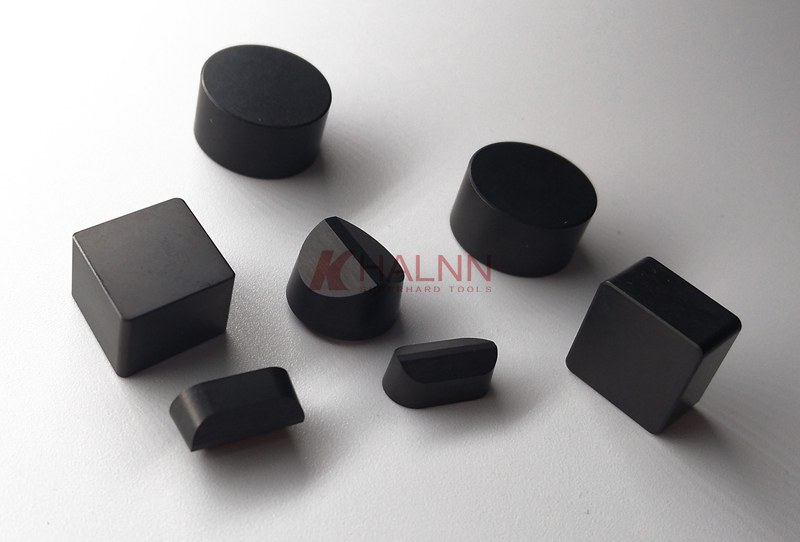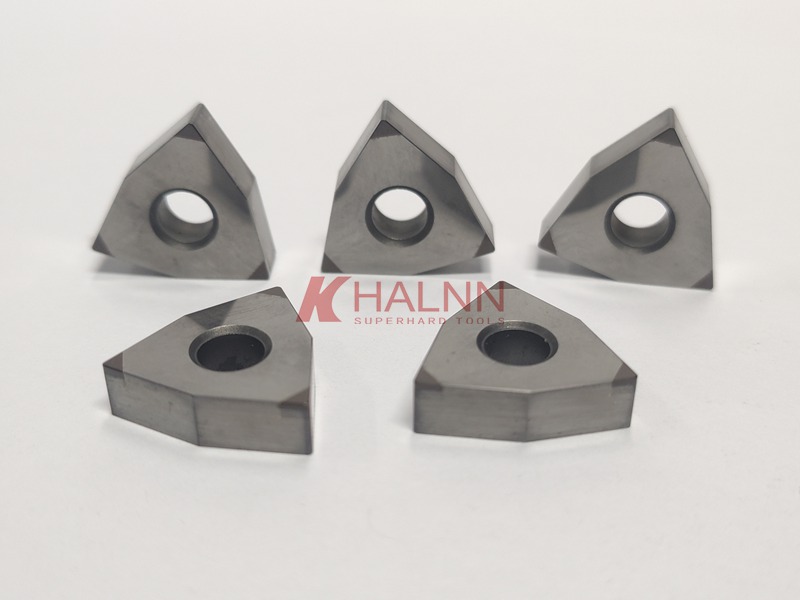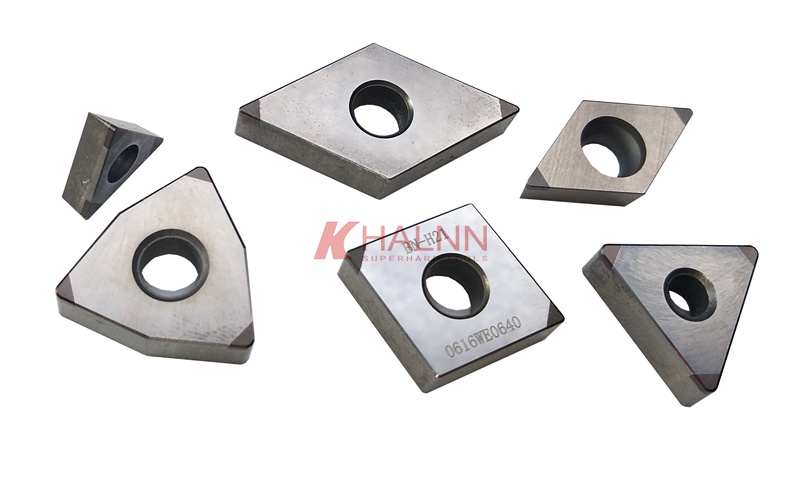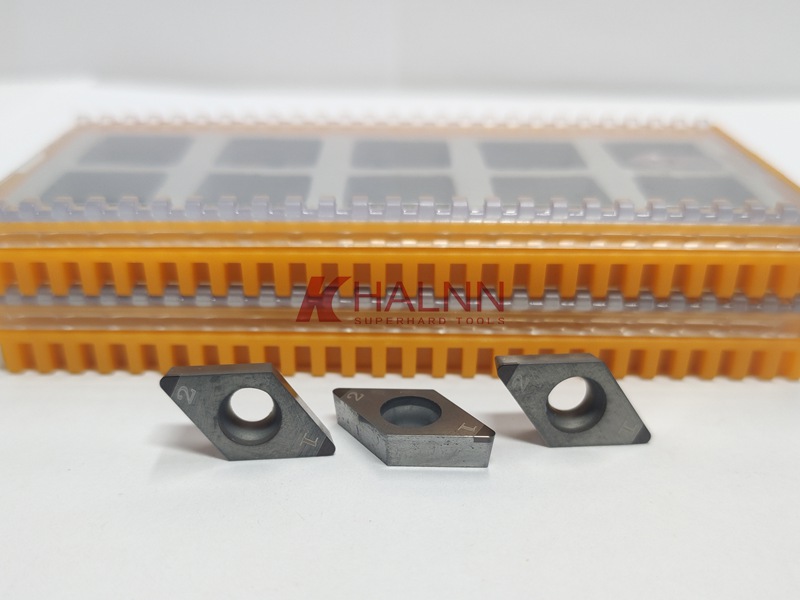CBN (Cubic Boron Nitride) tools are renowned for their superior performance in machining hardened materials. One of the critical attributes that sets CBN tools apart is their hardness. This article delves into the concept of CBN tool hardness, highlighting its importance, measurement, and the factors that influence it. Our aim is to provide valuable insights to users while promoting Halnn’s exceptional products.
CBN tool hardness refers to the resistance of the cutting tool material to deformation and wear. Hardness is a key property in cutting tools, directly affecting their performance, durability, and ability to maintain precision during machining. CBN boasts a hardness level that is second only to diamond, making it an ideal choice for applications involving hard materials.
Hardness plays a vital role in various aspects of CBN tools:
Wear Resistance: Higher hardness equates to greater wear resistance, enabling CBN tools to maintain their cutting edges longer and reducing the frequency of replacements.
Cutting Speed: Harder tools can operate at higher cutting speeds, leading to improved productivity and efficiency in machining operations.
Precision and Surface Finish: Maintaining tool hardness ensures that the tool can consistently produce high-quality finishes on the workpiece, critical for precision engineering applications.

Hardness is typically measured using various scales, including:
Mohs Scale: Ranks materials based on their scratch resistance.
Vickers Hardness Test: Measures hardness through the indentation left by a diamond tip under a specific load.
Rockwell Hardness Test: Provides a direct measurement of hardness using different scales, depending on the material.
These tests provide insight into how CBN tools will perform under different machining conditions.
Several factors influence the hardness of CBN tools:
Material Composition: The quality of raw materials and additives used in the manufacturing process can significantly impact hardness levels.
Manufacturing Processes: Techniques such as sintering and the use of high-pressure conditions during production enhance the hardness of CBN tools.
Temperature and Cutting Conditions: Operating temperatures during machining can affect tool hardness. Maintaining optimal cooling helps preserve hardness.
Coatings: Certain coatings can enhance hardness and wear resistance, making CBN tools even more effective.

When comparing CBN hardness to other cutting materials, such as PCD (Polycrystalline Diamond) and carbide, CBN exhibits superior hardness, especially in high-speed applications involving hardened steel. While PCD tools are excellent for non-ferrous materials, CBN tools outperform them in hard machining scenarios due to their increased resistance to wear and thermal shock.
CBN tools are particularly advantageous in hard turning applications and machining operations involving materials like tool steel, high-speed steel, and various alloyed steels. For example, a manufacturer utilizing Halnn CBN tools observed a 30% increase in tool life and a significant reduction in production costs, demonstrating the benefits of leveraging CBN tool hardness in practical applications.
Understanding CBN tool hardness is essential for selecting the right cutting tools for specific machining tasks. The hardness of CBN tools not only enhances their performance but also ensures greater efficiency and longevity. At Halnn, we are dedicated to providing high-quality CBN tools that meet the rigorous demands of the industry. By investing in our CBN solutions, users can maximize their machining capabilities and achieve superior results.:
CBN tool hardness refers to the ability of cubic boron nitride tools to resist deformation and wear during machining. It is a critical property that influences the tool's performance and lifespan.
CBN hardness is typically measured using scales such as the Vickers hardness test, Rockwell hardness test, and Mohs scale, which assess the material's resistance to indentation and scratching.

Hardness is essential for ensuring wear resistance, enabling higher cutting speeds, and maintaining precision in machining operations, which ultimately enhances tool longevity and performance.
CBN is one of the hardest materials available, second only to diamond. It surpasses materials like carbide and HSS in hardness, making it ideal for machining hardened steels and other tough materials.
Factors include the material composition, manufacturing processes, operating temperature, and any coatings applied to the tools, all of which can influence overall hardness and performance.
While CBN hardness remains stable under normal operating conditions, excessive heat or improper cooling can lead to thermal degradation, impacting its performance and effectiveness.
Yes, there are various grades of CBN tools designed for specific applications, with hardness levels tailored to meet the demands of different machining tasks, particularly in hard materials.
Higher hardness allows CBN tools to maintain sharper cutting edges, reduce wear, and enable faster machining speeds, ultimately improving overall productivity and reducing costs.

Our website: https://www.halnn-group.com/
Email: halnntools@halnn-group.com
Whatsapp/ Wechat: +8613271562251
WhatsApp:8613271562251
Email:service@halnn-group.com
Address:R & D 5B, National University Science and Technology Park, National University, Changchun Road, Zhengzhou High-tech Zone